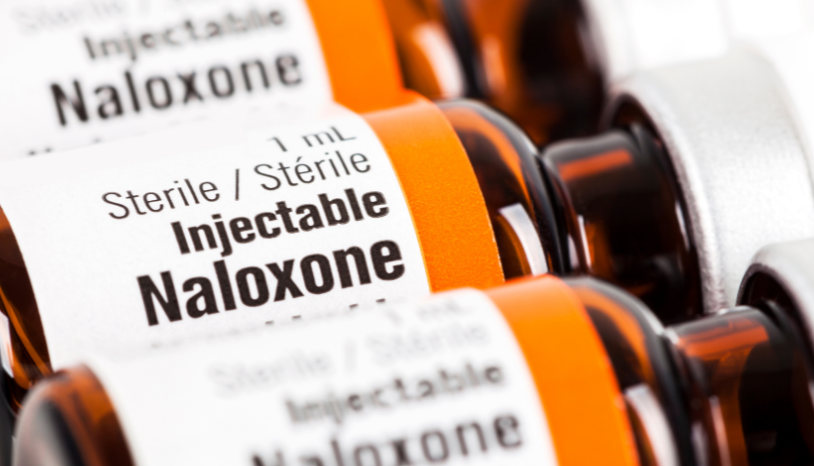The emergence of novel synthetic substances in recent years is concerning. Few substances have generated as much press as flakka, also known as gravel, zombie drug, or alpha-PVP.
This powerful synthetic stimulant is notorious for its potent effects and association with erratic, sometimes dangerous behavior. Read on to learn more about flakka drug effects, risks, and treatment options.
What is Flakka?
Flakka belongs to a class of synthetic drugs known as synthetic cathinones, often known informally as bath salts. Chemically, it’s classified as alpha-pyrrolidinopentiophenone (alpha-PVP), a synthetic derivative of cathinone, which is a naturally occurring stimulant found in the khat plant (Catha edulis).
First developed in the 1960s, flakka remained relatively obscure until around 2014, when it emerged as a substance of concern in the United States, especially in Florida.
Unlike naturally occurring substances, flakka is manufactured in labs, mainly overseas, and typically appears as white or pink crystalline rocks that can be swallowed, snorted, injected, or vaporized. Its chemical structure closely resembles other synthetic cathinones, but its potency and specific neurochemical actions mean it has a distinct and particularly hazardous profile.
Chemical Mechanism and Comparison
Flakka functions mainly by inhibiting the reuptake of neurotransmitters in the brain, specifically dopamine and norepinephrine. While many stimulants affect these same neurotransmitter systems, flakka is highly potent and can cross the blood-brain barrier rapidly, contributing to its intense effects.
The substance is sometimes marketed as a replacement for MDMA (ecstasy) or cocaine, but its effects are dramatically different and potentially more dangerous. Unlike some other synthetic cathinones that have both stimulant and empathogenic (producing feelings of empathy) effects, flakka’s action is predominantly stimulant in nature.
Short-Term Effects of Flakka
The acute effects of flakka begin shortly after administration and can last several hours, with significant variability based on dosage, route of administration, and individual factors.
Neurological and psychological effects
Initial flakka drug effects often include:
- Intense euphoria: People may experience an initial sense of pleasure and well-being.
- Heightened alertness: Increased wakefulness and energy.
- Hyperstimulation: Extreme physical and mental excitation.
- Increased sociability: Initial feelings of connection and reduced social inhibition.
As the drug’s effects progress, people commonly experience more alarming symptoms:
- Agitation and aggression: Escalating restlessness that may develop into combative behavior.
- Paranoia: Intense suspicion and fear, often accompanied by a sense of persecution.
- Hallucinations: Visual and auditory disturbances that can be extremely frightening.
- Delusions: Fixed, false beliefs that may drive dangerous behavior.
- Excited delirium: A state characterized by extreme agitation, confusion, hyperthermia, and often combative behavior.
Physiological effects
Physically, flakka produces pronounced effects on multiple body systems:
- Cardiovascular changes: Elevated heart rate, increased blood pressure, and risk of arrhythmias.
- Hyperthermia: Dangerous elevation in body temperature, sometimes exceeding 106°F.
- Muscle effects: Increased muscle tension, tremors, and the potential for rhabdomyolysis (breakdown of muscle tissue).
- Profuse sweating: Excessive perspiration associated with hyperthermia.
- Respiratory effects: Accelerated breathing and potential respiratory distress.
- Dental damage: Grinding of teeth (bruxism) and dental deterioration.
These physiological effects reflect the drug’s powerful impact on the CNS (central nervous system) and peripheral organ systems. The combination of psychological and physical effects creates a particularly damaging presentation that requires prompt medical intervention.
Long-Term Effects of Flakka Use
Chronic flakka use can lead to persistent and potentially irreversible consequences across many areas of health and functioning. Research on long-term effects continues to evolve, but clinical observations and emerging studies suggest several concerning outcomes.
Neurological and cognitive impacts
- Cognitive impairment: Deficits in attention, memory, and executive functioning.
- Persistent psychosis: Ongoing hallucinations, paranoia, and delusional thinking.
- Mood disorders: Development or exacerbation of depression, anxiety, or bipolar symptoms.
- Neurological damage: Potential for lasting changes in brain structure and function.
Physical health consequences
Extended flakka use can severely harm physical health through multiple mechanisms:
- Cardiovascular damage: Hypertension, increased risk of stroke, heart attack, and chronic heart disease.
- Kidney dysfunction: Acute kidney injury that may progress to chronic kidney disease.
- Liver damage: Hepatic stress and potential development of liver disease.
- Malnutrition: Significant weight loss and nutritional deficiencies.
- Dental deterioration: Severe decay, gum disease, and tooth loss.
Psychosocial consequences
Beyond physiological impacts, chronic flakka use often leads to profound social and functional deterioration:
- Relationship breakdown: Damaged connections with family, friends, and romantic partners.
- Occupational impairment: Job loss and career disruption.
- Financial problems: Economic instability related to drug-seeking behavior.
- Legal consequences: Increased risk of arrest and incarceration.
- Housing instability: Potential homelessness and unsafe living conditions.
The combination of these flakka drug effects provokes challenges that can make recovery increasingly difficult without comprehensive intervention.
Flakka Overdose Risks
Flakka carries a significant risk of overdose with potentially fatal consequences. The margin between a recreational dose and a toxic dose is narrow, and the variability in potency between batches compounds this risk.
Signs and Symptoms of Flakka Overdose
A flakka overdose typically presents with extreme manifestations of the drug’s effects, including:
- Severe hyperthermia: Body temperatures exceeding 106°F.
- Extreme agitation: Violent behavior that may require multiple people for restraint.
- Cardiovascular crisis: Tachycardia (rapid heart rate), hypertension, arrhythmias, or cardiac arrest.
- Respiratory distress: Labored breathing and respiratory failure.
- Neurological signs: Seizures, tremors, or muscle rigidity.
- Renal failure: Acute kidney injury resulting from multiple mechanisms.
- Metabolic acidosis: Dangerous changes in blood chemistry.
Emergency Management of Flakka Overdose
Flakka overdose constitutes a medical emergency requiring immediate intervention. Management typically includes:
- Rapid sedation: Benzodiazepines to control agitation and prevent self-injury.
- Temperature management: Active cooling measures to address hyperthermia.
- Supportive care: Intravenous fluids, respiratory support, and cardiac monitoring.
- Laboratory monitoring: Assessment of renal function, electrolytes, cardiac enzymes, and muscle breakdown markers.
- Extended observation: Monitoring for delayed effects and complications.
Healthcare providers should be aware that standard drug screens may not detect flakka, requiring specialized testing for confirmation. The management of flakka overdose often requires intensive care resources and multidisciplinary expertise.
Treatment for Flakka Addiction
Addressing flakka addiction requires a comprehensive approach that begins with medical stabilization and extends through recovery support. While specific treatments continue to evolve with an increased understanding of synthetic cathinones, several evidence-based approaches show promise.
Medical detoxification
The initial phase of treatment focuses on safely managing withdrawal and addressing any medical complications:
- Monitored setting: Inpatient medical supervision to ensure safety.
- Symptom management: Medications to address agitation, anxiety, and sleep disturbances.
- Physical stabilization: Correction of electrolyte imbalances, hydration, and nutritional support.
- Psychiatric assessment: Evaluation for co-occurring mental health conditions.
Behavioral interventions
Following medical stabilization, evidence-based therapies form the foundation of treatment:
- CBT (cognitive behavioral therapy): Addressing and altering thought patterns and behaviors associated with drug use.
- Contingency management: Reinforcing drug-free behaviors.
- Motivational interviewing: Building internal motivation for change.
- Group therapy: Peer support and shared learning experiences.
Comprehensive rehabilitation
Effective treatment addresses the full spectrum of needs:
- Dual diagnosis treatment: Treating co-occurring mental health disorders.
- Case management: Coordination of services across multiple domains.
- Life skills development: Building capabilities for independent functioning.
- Family involvement: Education and therapy for family systems.
Long-term recovery support
Sustaining recovery requires ongoing engagement and support:
- Continuing care planning: Structured approach to maintaining recovery.
- Relapse prevention strategies: Identifying triggers and developing coping mechanisms.
- Peer support programs: Connection with others in recovery.
- Regular monitoring: Ongoing assessment of progress and needs.
How The Retreat South Coast Can Help
At The Retreat, we appreciate the challenges presented by synthetic stimulant addiction, including flakka. Our comprehensive treatment programs are designed to address both the immediate medical needs and long-term recovery requirements of those affected by these substances.Contact our admissions team at (949) 612-4789 for a confidential assessment and to learn more about our specialized programs for stimulant addiction.






